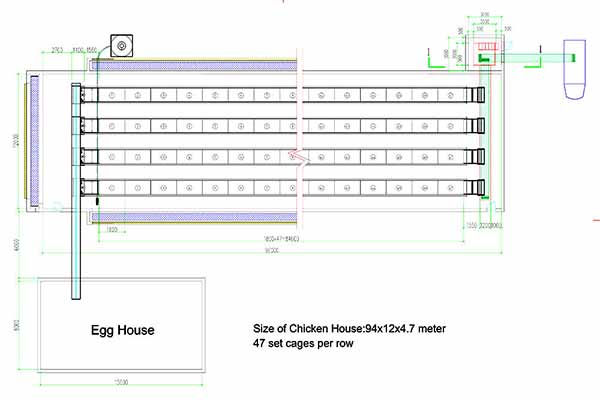Poultry Farming Startup Guide: A Comprehensive Overview
Time : 2025-06-24
Embarking on a poultry farming startup is an exciting venture that requires careful planning and a solid understanding of the industry. This guide will provide you with a comprehensive overview of the key aspects you need to consider when starting a poultry farming business. From selecting the right equipment to understanding biosecurity, we’ll cover it all.
Understanding the Poultry Industry
Poultry farming is a diverse industry that encompasses the production of chickens, turkeys, ducks, geese, and other birds for meat and eggs. It’s a multi-billion dollar industry with a wide range of opportunities for entrepreneurs. Before diving into the startup process, it’s crucial to have a clear understanding of the market, consumer demands, and the challenges you might face.
Market Research
Conduct thorough market research to identify the type of poultry farming that suits your market. Consider factors like consumer preferences, local regulations, and potential competition. Understanding the market will help you make informed decisions about your startup.
Choosing the Right Location
The location of your poultry farm is critical to its success. Here are some key factors to consider:
- Climate: Choose a location with a climate that is suitable for the type of poultry you plan to raise. Extreme temperatures can be detrimental to the birds’ health and productivity.
- Access to Feed and Water: Ensure that your farm has easy access to high-quality feed and clean water sources.
- Regulations: Check local and national regulations regarding poultry farming to ensure compliance.
- Proximity to Markets: Being close to markets can reduce transportation costs and ensure fresh products reach consumers faster.
Selecting the Right Equipment
Investing in the right equipment is crucial for the success of your poultry farm. Here are some essential pieces of equipment to consider:
Brooders and Grow-out Pens
Brooders are used to keep chicks warm and comfortable in their first few weeks of life. Grow-out pens are used for raising chickens until they reach market weight. It’s important to choose equipment that is easy to clean, durable, and designed for the specific needs of your birds.
Fans and Heaters
Proper ventilation and temperature control are essential for the health of your birds. Fans and heaters should be installed to maintain optimal conditions throughout the year.
Feeders and Waterers
Automated feeders and waterers ensure that your birds have constant access to food and water, which is vital for their growth and health.

Incubators
Incubators are used to hatch egg s. They must maintain a consistent temperature and humidity to ensure proper development of the embryos.
s. They must maintain a consistent temperature and humidity to ensure proper development of the embryos.
Sorting and Grading Equipment
Sorting and grading equipment is used to categorize birds by weight and quality for market purposes.
Establishing Biosecurity Measures
Biosecurity is critical in poultry farming to prevent the spread of diseases. Here are some key biosecurity measures to implement:
- Sanitation: Regularly clean and disinfect all equipment and facilities to prevent the buildup of pathogens.
- Isolation: Keep new birds in isolation for a period to prevent the introduction of new diseases.
- Employee Health and Hygiene: Ensure that all employees practice good hygiene, including regular hand washing and the use of footbaths.
Managing Your Farm’s Financials
Managing your farm’s finances is crucial for the long-term success of your business. Here are some tips:
- Budgeting: Create a detailed budget that includes all costs, such as feed, equipment, labor, and marketing.
- Record Keeping: Keep accurate records of all financial transactions and expenses.
- Insurance: Protect your investment with appropriate insurance coverage.
Marketing and Sales
Develop a marketing strategy to reach your target market. Consider the following:

- Direct Sales: Sell directly to consumers through farmers’ markets, CSA (Community Supported Agriculture) programs, or online platforms.
- Wholesale: Establish relationships with local restaurants, grocery stores, and other wholesalers.
- Brand Building: Create a strong brand identity to differentiate your products in the market.
Conclusion
Starting a poultry farming business is a complex endeavor that requires dedication, knowledge, and a passion for the industry. By following this comprehensive guide, you’ll be well on your way to establishing a successful poultry farm. Remember to always stay informed about industry trends, regulations, and best practices to ensure the ongoing success of your venture.











